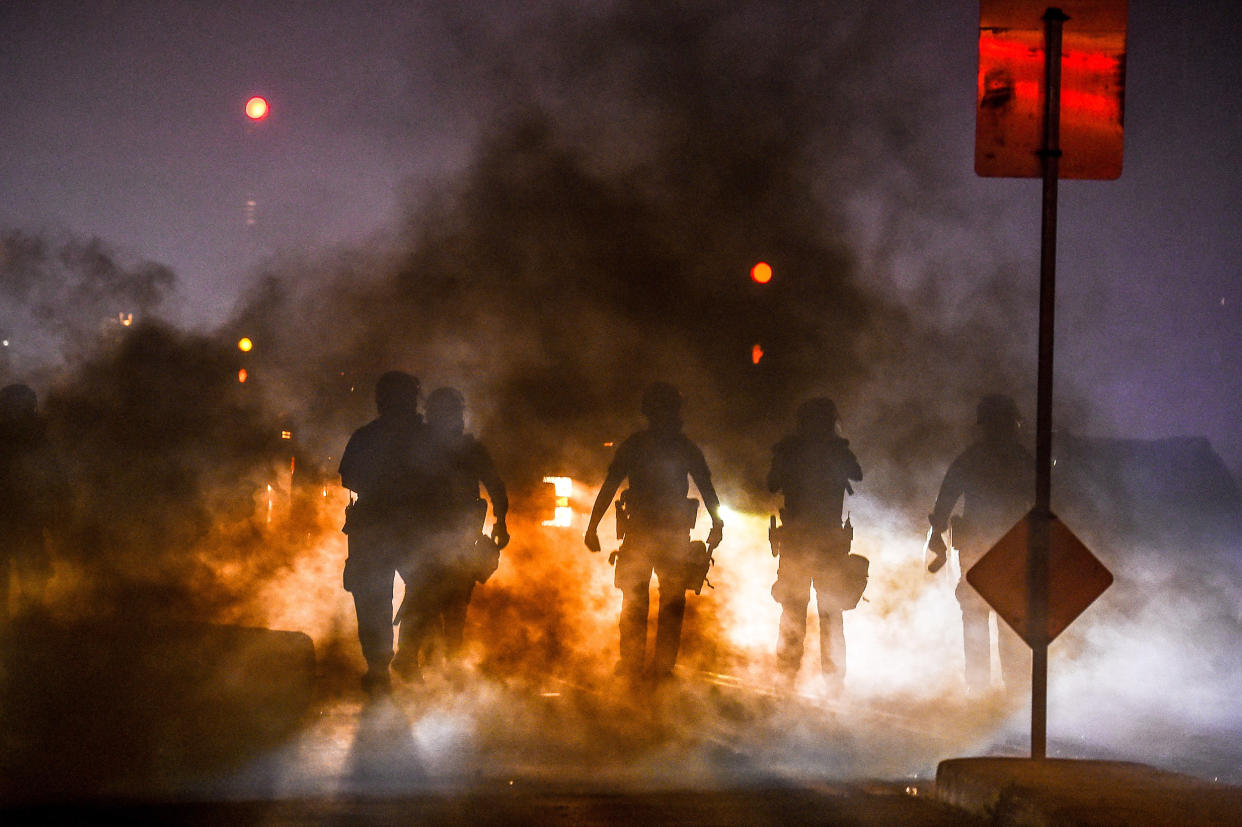Minnesota finds Minneapolis police engaged in pattern of racial discrimination
A state investigation has found that the Minneapolis Police Department engaged in a pattern of racial discrimination, a finding that will allow the state’s civil rights enforcement agency to begin developing a consent decree to force the department to change its practices and policies.
The investigation found disparities in how officers use force and conduct traffic stops when they engage with Black motorists compared to white ones, said Rebecca Lucero, the commissioner of the Minnesota Department of Human Rights.
It also found that officers used “covert social media to surveil Black individuals and Black organizations, unrelated to criminal activity,” and that officers consistently used “racist, misogynistic, and disrespectful language with impunity.”
The investigation was launched two years ago in the wake of the killing of George Floyd by then-Minneapolis Police Officer Derek Chauvin, who knelt on Floyd’s neck for 9½ minutes.
Chauvin was convicted in April 2021 on state charges of second- and third-degree murder, as well as second-degree manslaughter. He was sentenced to 22½ years in prison in June. He also pleaded guilty to federal charges of violating Floyd’s civil rights.
Three former officers who were also present when Floyd died were convicted in February of depriving Floyd of his federal civil rights while acting under government authority when they failed to give him medical aid. Their state trial on charges of aiding and abetting Floyd’s murder is scheduled to begin in June.
The case was a watershed moment for discussions around race, policing and police brutality.
“Following the murder of George Floyd, demands to end discriminatory policing practices reverberated across the world,” Lucero said. “Those demands remain just as urgent today with the announcement of the investigative findings, which paints an unsettling picture of the city of Minneapolis and the Minneapolis Police Department engaging in a pattern of racial discrimination over the last decade.”

Lucero said the investigation and its findings were not based on any one officer or case. Instead, she said, it looked at the city’s policing as a whole over 10 years, using 700 hours of body camera video, nearly 480,000 pages of city and police documents and observations of about 87 hours of police academy training.
The report found that the “pattern or practice of race-based policing is caused by MPD’s ineffective oversight and accountability structures and ineffective trainings that reinforce a culture that is averse to accountability and not supportive for officers.”
“Additionally, City and MPD leaders have failed to act collectively with the urgency, coordination, and intentionality necessary to address well-known racial disparities,” it says.
Interim Police Chief Amelia Huffman said the findings were “deeply concerning.”
“We will review this report in collaboration with city leadership and community members to ensure that we have a full understanding of the issues this report raises,” she said. “We're committed to providing an effective constitutional police service.”
The civil rights enforcement agency plans to work with the city to develop a consent decree, which would provide a mechanism to require the police department to change its policies and practices and would be enforced by a judge.
The process will include collaboration with “community members, MPD officers, City staff, and other stakeholders to gather feedback on what should be included in a consent decree to address racial discrimination in policing in Minneapolis.”
Hennepin County District Court will be responsible for independently overseeing the city’s implementation of the consent decree.
Mayor Jacob Frey said that the city has “a lot of work ahead” but that it is also “galvanized around making the necessary change and culture shift we need, not just in the police department but throughout the city."
The state Human Rights Department has had success with pushing the city to make changes in the police department. It obtained a temporary court order in 2020 that required the police department to immediately ban the use of chokeholds, required officers to report or intervene in unauthorized use of force by other officers and made it so that only a chief of police could approve the use of crowd control weapons during protests.
Civil rights attorney Benjamin Crump, who represented Floyd’s family, cheered the findings, saying a state consent decree “would give us assurance, at last, that real change in policing is possible and Minneapolis can become a safer city for its Black residents.”
While the state has wrapped up its investigation, the U.S. Justice Department is conducting its own investigation into discriminatory policing by the department.
The federal investigation is being conducted under the Violent Crime Control and Law Enforcement Act of 1994, which prohibits state and local governments from engaging in patterns or practices of conduct by law enforcement officers that deprive individuals of rights protected by the Constitution or federal law.
Lucero said that state and federal agencies are acting independently and that it is possible to have two separate consent decrees for the same city and police department.
